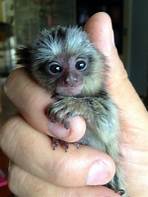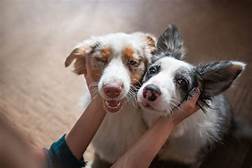Where Do I Get a Pet Monkey?
Owning a pet monkey may seem like an exotic and exciting idea, but it's important to consider all the factors involved before making a decision. Monkeys are wild animals with complex needs, and they require specialized care and attention. If you're serious about owning a pet monkey, here's a comprehensive guide to help you understand the process and where you can find one.

Legality and Ethical Considerations
Before anything else, make sure owning a pet monkey is legal in your area. Some countries and states have strict regulations or outright bans on keeping monkeys as pets. Even if it's legal, consider the ethical implications of taking a wild animal out of its natural habitat and keeping it in captivity. Monkeys are social creatures that thrive in large groups, so isolating them in a domestic setting can lead to loneliness and psychological distress.
Research and Preparation
If you're still determined to get a pet monkey, extensive research is essential. Learn about the different species of monkeys, their specific needs, and the challenges of caring for them. Consider your lifestyle, housing situation, financial resources, and the amount of time you can dedicate to your monkey's well-being. Proper housing, a nutritious diet, veterinary care, and regular socialization are all vital aspects of monkey ownership.
Where to Find a Pet Monkey
There are several options for acquiring a pet monkey. If you decide to adopt, rescue organizations and sanctuaries may have monkeys in need of loving homes. Ensure the organization has a reputable history and can provide proper documentation, including proof of health checks and vaccinations. Another option is to purchase a monkey from a breeder. Research and select a reputable breeder who follows ethical breeding practices and ensures the monkeys' well-being. Buying a monkey from an illegal market or pet store is strongly discouraged due to the potential risk of disease transmission and poor animal welfare conditions.
Licensing and Permits
Depending on your location, you may need to obtain a license or permit to own a pet monkey. Contact your local authorities or wildlife agencies to determine the requirements and regulations in your area. The process can be lengthy, so it's important to start the application early. Additionally, some insurance companies may require you to have a license or permit before they'll cover your pet monkey.
Veterinary Care and Nutrition
Monkeys have specialized dietary needs, and they're susceptible to various health issues. Regular veterinary checkups and vaccinations are crucial to keep your monkey healthy. Find an experienced veterinarian who specializes in exotic animals and can provide proper care for your monkey. Avoid feeding your monkey processed foods or human food, as these can cause health problems. Instead, provide a balanced diet of fruits, vegetables, pellets, and insects, as appropriate for the specific species.
Enrichment and Socialization
Monkeys are active and intelligent animals, and they need mental and physical stimulation to thrive. Provide your monkey with plenty of toys, climbing structures, and interactive activities. Socialization is also essential for monkeys, so consider introducing them to other monkeys or providing opportunities for supervised interaction with humans. Neglecting a monkey's social needs can lead to behavioral problems and mental distress.
Releasing a Pet Monkey
If, for any reason, you can no longer care for your pet monkey, releasing it into the wild is generally not an option. Monkeys are not native to most parts of the world, and releasing them can endanger local ecosystems and threaten native wildlife. Instead, consider finding a reputable sanctuary or rescue organization that can provide your monkey with lifelong care.
Declaration: All article resources on this website, unless otherwise specified or labeled, are collected from online resources. If the content on this website infringes on the legitimate rights and interests of the original author, you can contact this website to delete it.





